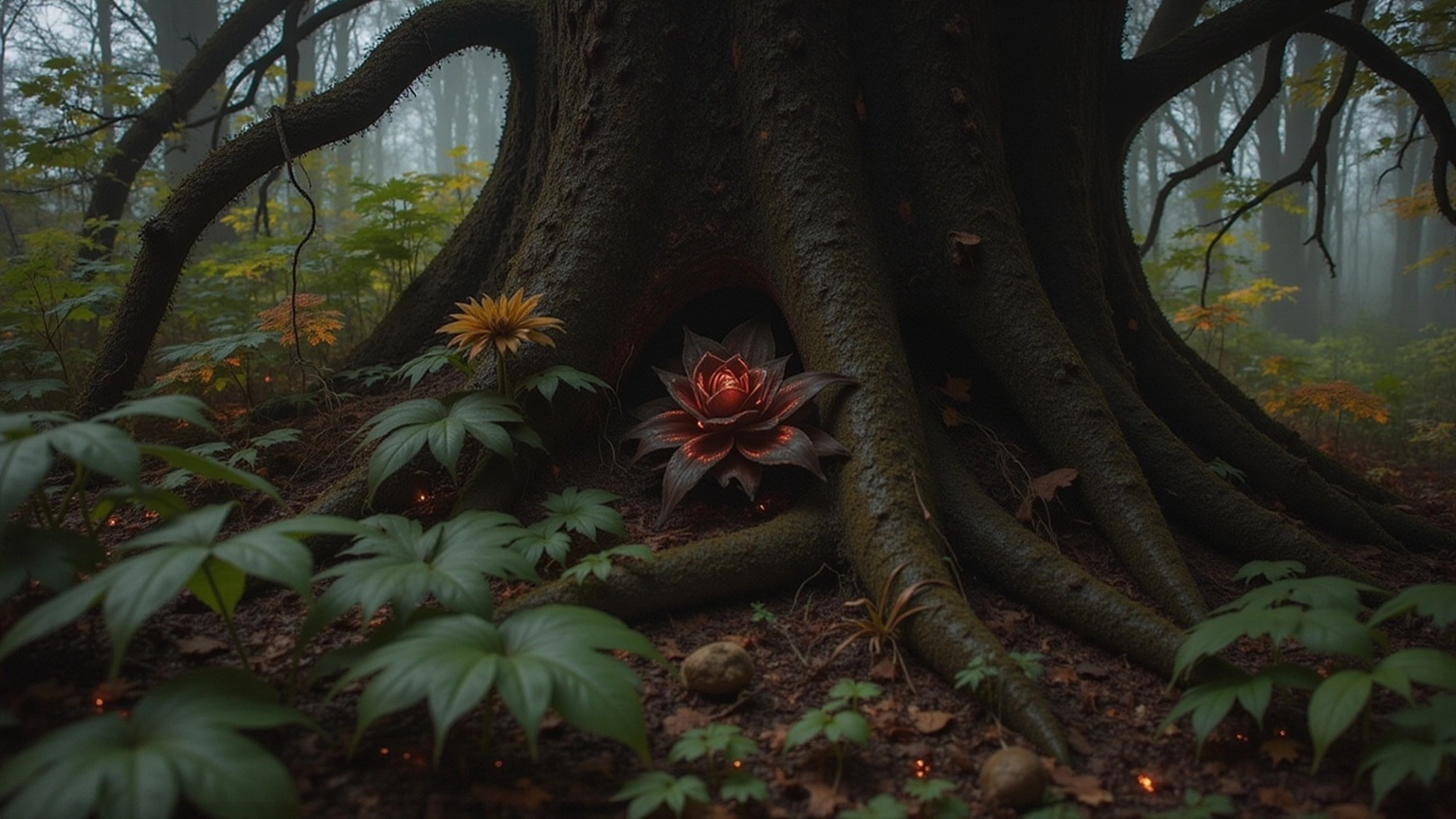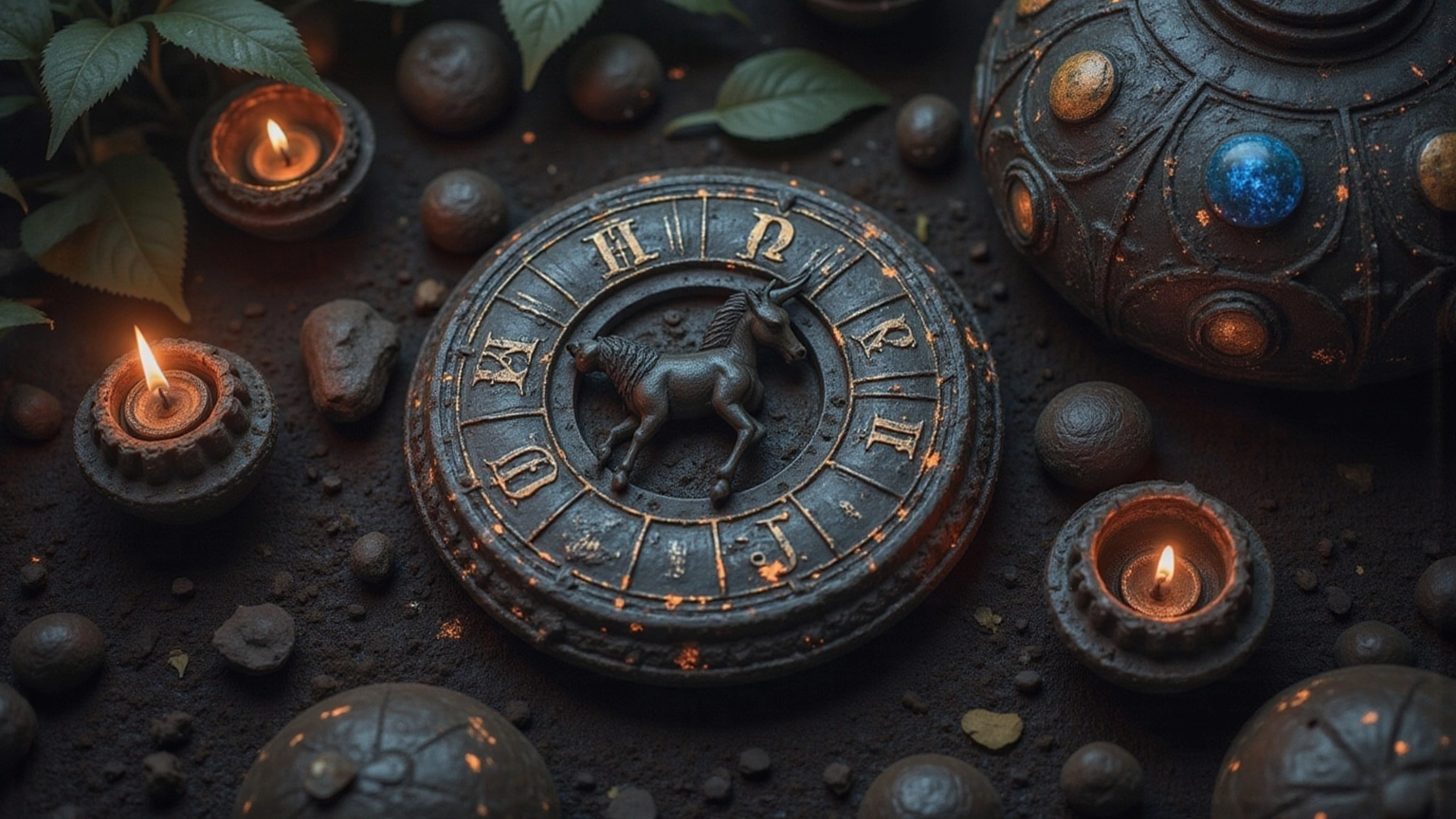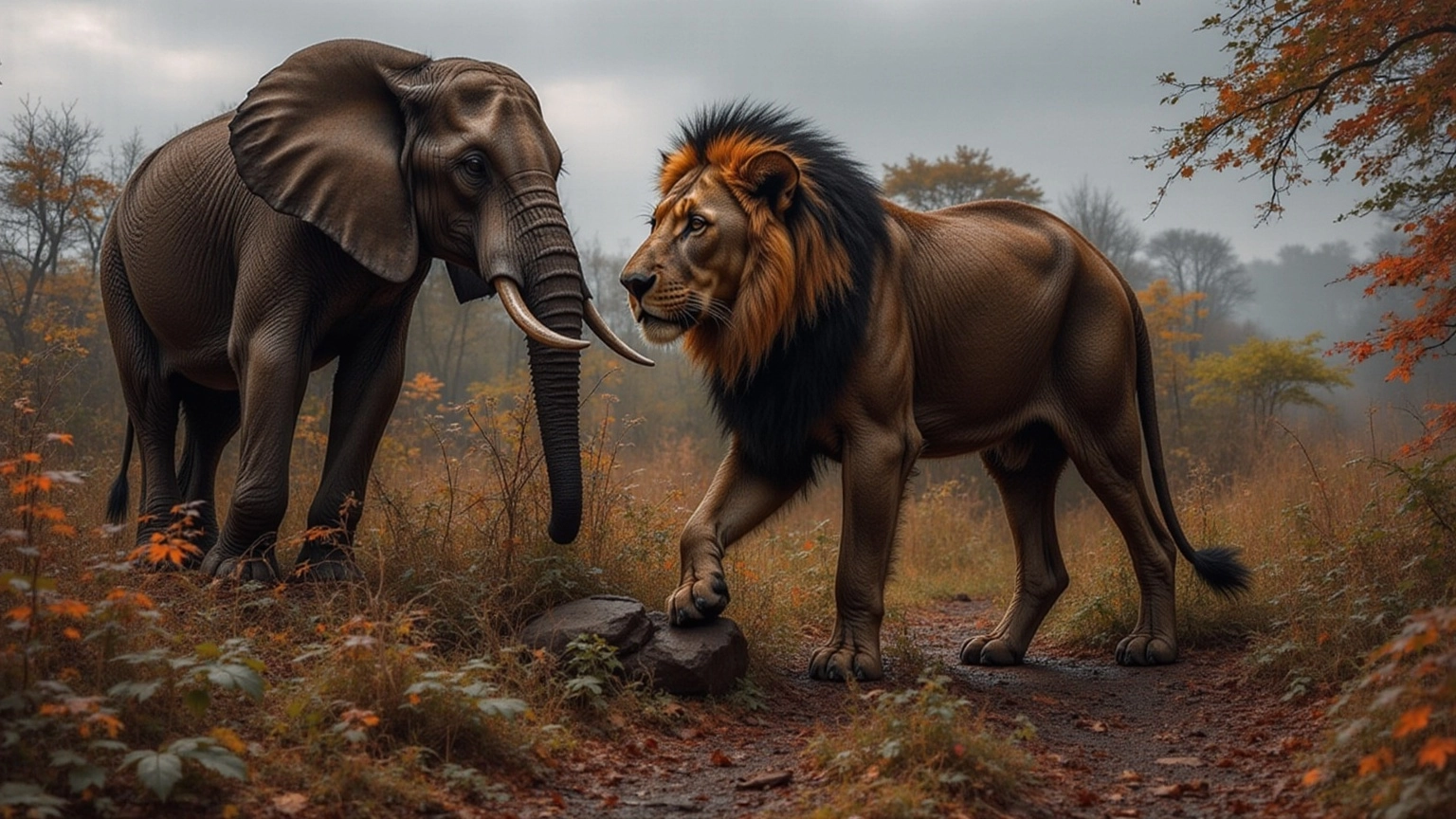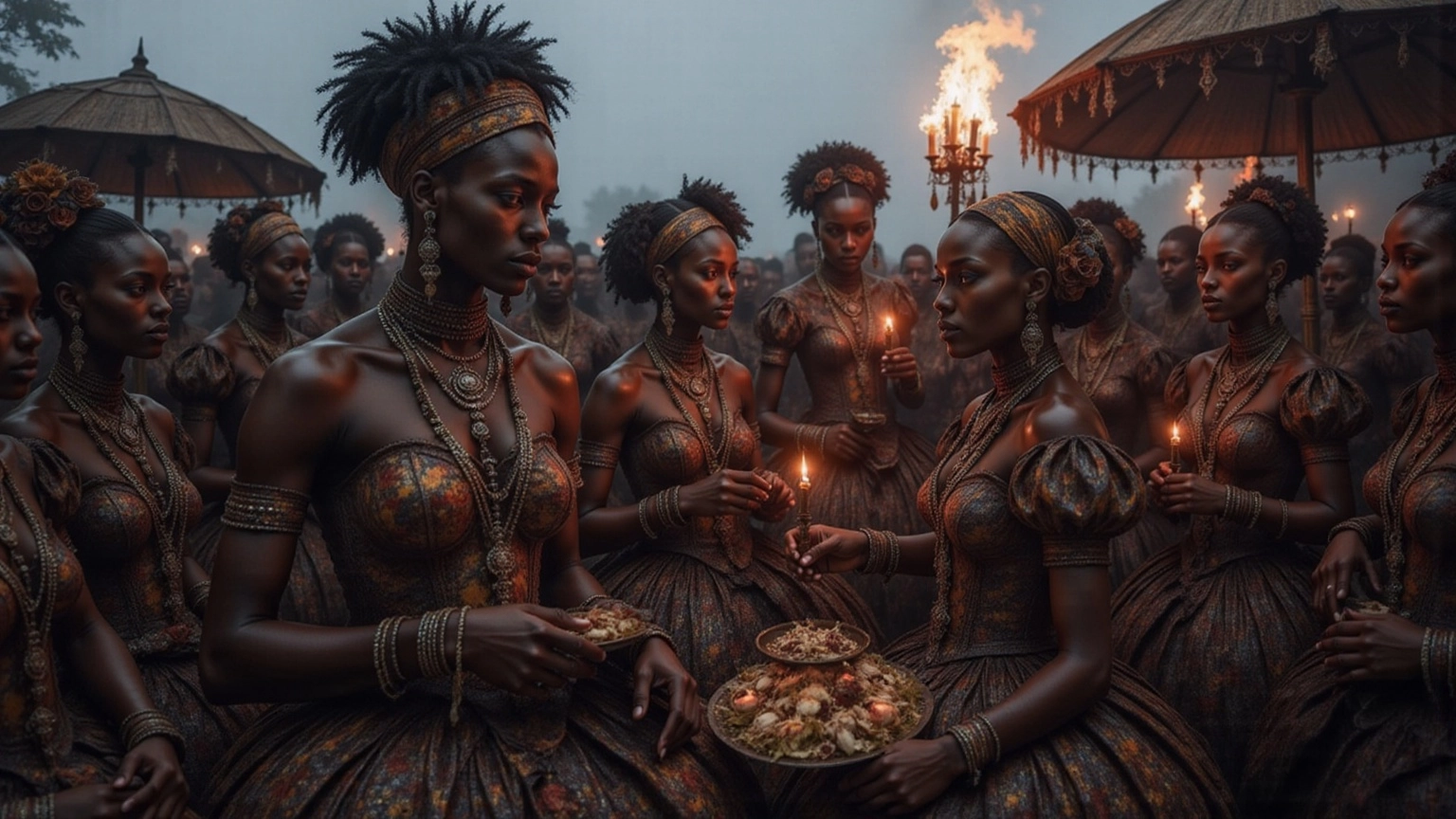
Understanding African Zodiac Signs: Origins and Meanings
Share
Overview
African zodiac signs pulse with the heartbeat of the continent, each symbol a fierce reflection of personality traits and cultural beliefs. They’re not just signs; they’re the lifeblood of nature and ancestral heritage, whispering secrets of the past. These zodiac systems? They don’t merely guide individuals through life’s maze; they forge vital connections to community identity and historical traditions. In a world shaken by colonial disruption, there’s an urgent call to reclaim and revive these practices. Are you ready to embrace the shadows and light of this rich tapestry?
Introduction
Astrology has always intrigued, but the African zodiac signs? They weave a tapestry unlike anything in the West. Each symbol pulses with cultural heritage, a mirror reflecting the values, beliefs, and natural elements that shape identities across the continent. Yet, as these ancient traditions grapple with colonial legacies and modern twists, one burning question lingers: how can we reclaim our astrological roots and unearth the profound truths they hold? Delving into the origins and meanings of African zodiac signs unveils not just personal traits but beckons us to explore the cultural narratives that still resonate in the shadows today.
Define African Zodiac Signs: An Overview
Astrological symbols, such as the African zodiac signs from various cultures on the continent, pulse with life, each representing distinct personality traits, characteristics, and life paths. Forget the Western Zodiac with its twelve symbols; here, Zodiac systems diverge wildly across regions and ethnic communities. These symbols are woven into the fabric of nature—elements, animals, ancestral spirits—reflecting a deep, visceral bond between individuals and their cultural roots. Understanding these indicators unravels the values, beliefs, and traditions shaping African societies, including the African zodiac signs.
Take the Baobab Tree symbol, for example. Born from January 4th to February 3rd, it embodies honesty, thoughtfulness, and a liberal mindset. Those under this sign? Diligent, enduring, and often stepping up as community advisors and mediators. Thursdays? They’re their day—imbued with significance. Then there's the Distance symbol, stretching from October 4th to November 3rd, linked to inner strength and creativity, yet shadowed by impatience and anxiety.
As Reyna Charles puts it, "Individuals born under the Baobab Tree symbol are honest, demonstrate thoughtfulness, and possess a liberal mindset." This quote doesn’t just state facts; it breathes life into the narrative, enhancing its credibility. Understanding these symbols, including African zodiac signs, isn't just academic; it’s a lens into the values, beliefs, and customs that shape African societies. Each symbol of the African zodiac signs mirrors personal traits while guiding individuals through their life journeys—a testament to the power of community and shared experiences. This approach to astrology isn’t merely about stars; it’s about delving into the cultural significance of these symbols, inviting everyone to explore their identities within the rich tapestry of their heritage.

Explore the Historical Context and Cultural Significance
Zodiac symbols? They pulse with the heartbeat of ancient cultures, where astrology isn’t just a pastime—it's the backbone of social and spiritual life. Across the continent, distinct astrological systems, such as the African zodiac signs, have emerged, each one a reflection of local traditions, cosmology, and the raw power of nature.
Take the Dogon people of Mali, for instance. Their astrological tradition is a labyrinth of celestial knowledge, a deep dive into how the stars influence our very existence. As one observer puts it, "These acts have obviously made the concept of western astrology appear as a foreign, non-native system when it was primarily derived from the ancient wisdom and knowledge of our ancestors."
These African zodiac signs are not just tools for divination; they create connections between people, their ancestors, and the cosmos, strengthening community bonds and cultural identity. Astrology isn’t just a relic—it's a lifeline, guiding individuals through personal and communal storms, wrapping them in a cloak of belonging and continuity.
But wait—colonization has thrown a wrench into this intricate tapestry, distorting the essence of these traditions and leaving a fragmented legacy. It’s time to revive and reclaim these astrological practices, a crucial step for those in the diaspora yearning to reconnect with their roots. Are you ready to explore this cosmic journey?

Examine Key Characteristics and Meanings of Each Sign
Each African Zodiac sign is characterized by distinct traits and meanings, steeped in cultural symbolism. Take the Lion, for instance—this symbol roars with courage and leadership, a testament to its regal presence and raw strength. Now contrast that with the Elephant, an emblem of wisdom and might, revered for its sharp intelligence and nurturing spirit. These traits are woven tightly with the creatures and natural elements they represent, crafting a rich tapestry of meaning that resonates with our very identities.
But wait—what if your birth under the African zodiac signs reveals unique strengths or specific challenges? These insights could serve as guiding principles on your personal and spiritual journey. By diving into these traits, you can navigate your life with a sharpened awareness and intention, fully embracing the wisdom and guidance your astrological symbol offers. So, are you ready to explore the depths of your cosmic identity?

Analyze Variations and Cultural Interpretations
Zodiac symbols? They're a wild tapestry, bursting with diversity across cultures and regions. Some communities revel in the spiritual side, wielding these symbols as tools for personal evolution and deep reflection. Others? They’re all about the practical, weaving these celestial signs into the fabric of everyday life.
Take African zodiac signs, for instance—they are steeped in ancient heritage, tracing back thousands of years to the cradle of civilization along the Nile, in places like Egypt and Nubia. In certain cultures, these symbols ignite vibrant festivals and rituals, a communal shout of identity and belief.
Look at the Dogon people of Mali. They blend their profound astronomical insights with spiritual beliefs, revealing a rich connection between the stars and cultural practices. Yet, in other realms, these symbols morph into instruments for introspection and decision-making. Ancestral guidance is sought during astrology readings, helping individuals carve their paths through life’s labyrinth. This intricate web of interpretations highlights Africa’s profound cultural legacy, illustrating how African zodiac signs are intricately woven into the daily rhythms of its people.
So, why not dive deeper? Explore the layers and nuances of African Zodiac signs to discover their striking relevance in today’s world. It’s a journey worth embarking on—one that promises to challenge your view and ignite your curiosity.

Conclusion
Exploring African zodiac signs isn't just a stroll through symbols; it's a plunge into a vibrant tapestry of cultural significance and traditions that pulse with life. Each sign? It’s a mirror reflecting unique personality traits, but it’s also a vessel carrying the values and beliefs that mold various African societies. Dive into these symbols, and you’ll find a pathway back to your roots, unraveling insights about your journey—where identity and culture intertwine in a profound dance.
What stands out in this exploration? The kaleidoscope of interpretations across communities. Take the Dogon people, for instance, with their intricate celestial knowledge, or the everyday magic these symbols weave into life. From the fierce strength of the Lion to the nurturing wisdom of the Elephant, each sign shines a guiding light for personal growth and spiritual exploration. And let’s not ignore the shadow of colonization—its impact on these traditions screams for revival, reclaiming astrological practices that foster belonging and continuity within the diaspora.
So, why does this matter? Delving into the meanings and origins of African zodiac signs transcends mere academic curiosity; it’s a crucial journey toward self-discovery within a broader cultural narrative. Embrace this exploration. Celebrate your identity. Reconnect with the ancestral wisdom that has shaped your community for generations. The call to action? Unearth the significance of your African zodiac sign and let it steer you toward self-awareness and fulfillment. Are you ready to take that leap?
Frequently Asked Questions
What are African zodiac signs?
African zodiac signs are astrological symbols from various cultures across the African continent, each representing distinct personality traits, characteristics, and life paths, reflecting a deep connection to nature and cultural roots.
How do African zodiac signs differ from Western zodiac signs?
Unlike the Western zodiac, which has twelve symbols, African zodiac systems vary widely across regions and ethnic communities, incorporating elements, animals, and ancestral spirits into their symbolism.
Can you give an example of an African zodiac sign?
The Baobab Tree symbol, representing individuals born from January 4th to February 3rd, embodies traits such as honesty, thoughtfulness, and a liberal mindset. People under this sign are often diligent, enduring, and serve as community advisors.
What are some personality traits associated with the Distance symbol in the African zodiac?
The Distance symbol, associated with those born from October 4th to November 3rd, is linked to inner strength and creativity, but may also be accompanied by impatience and anxiety.
What is the significance of understanding African zodiac signs?
Understanding African zodiac signs provides insight into the values, beliefs, and traditions that shape African societies, offering a lens through which individuals can explore their identities and cultural heritage.
What role do symbols play in African astrology?
In African astrology, symbols mirror personal traits and guide individuals through their life journeys, emphasizing the importance of community and shared experiences.
